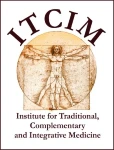
Prof. Dr. Dušan Vešović - Serbia
Abstract of the presentation
Health Implications of Endocrine-Disrupting Chemicals (EDCs): Is Clinical Medicine Addressing the Risk Adequately?
Branch: Detoxification
Endocrine-disrupting chemicals (EDCs) are exogenous substances that interfere with the body’s hormonal balance, contributing to a wide spectrum of health disorders. Found in plastics, pesticides, cosmetics, personal care products, and industrial pollutants, EDCs have been linked to hormone-dependent cancers, thyroid dysfunction, reproductive abnormalities, immune suppression, metabolic disorders, and neurodevelopmental issues. Despite mounting scientific evidence, the clinical relevance of EDCs remains under-recognised. This presentation aims to raise awareness among healthcare professionals by summarising key findings and emphasising the importance of EDCs in preventive and clinical practice.
EDCs act through multiple mechanisms: they can mimic, block, or alter hormone synthesis, secretion, or transport. Even in small doses, they may significantly affect endocrine-sensitive tissues such as the breasts, uterus, prostate, thyroid, and brain. The effects of diethylstilbestrol (DES), highlighted as early as the 1970s, reveal the transgenerational impact of EDCs, with links to reproductive abnormalities and neurobehavioural disorders such as ADHD.
Common EDCs include bisphenol A (BPA), phthalates, dioxins, PFAS, PCBs, triclosan, and pesticides such as glyphosate. They enter the body via ingestion, inhalation, or skin contact, and many persist in the environment due to poor biodegradability. Ongoing international research focuses on developing improved diagnostic models, high-throughput testing methods, and tools to assess neuroendocrine disruption.
Clinical attention to EDC exposure is crucial in the evaluation of patients with unexplained metabolic, hormonal, or reproductive issues. Healthcare providers should educate patients on reducing exposure: replacing plastic with glass or ceramic, avoiding microwaving in plastic containers, choosing phthalate- and BPA-free products, and promoting dietary detoxification strategies and adequate hydration. Integrating EDC awareness into clinical education and public health policy is essential. Medical professionals must take an active role in recognising, preventing, and managing EDC-related risks to improve long-term health outcomes.
Curriculum vitae
Dr Dušan Vešović graduated with honours from the Faculty of Medicine, University of Belgrade, in 1993 (GPA 9.39/10). He specialised in Occupational Medicine (1998), obtained a Master’s degree (1997), and completed his PhD in Medical Sciences (2002).
He began his academic career at the Institute of Occupational Medicine and Radiological Protection “Dr Dragomir Karajović” and served as an assistant at the Department of Occupational Medicine, Faculty of Medicine, University of Belgrade. Following his doctorate, Dr Vešović worked as a research fellow on a diabetes-related project at the University of Illinois at Chicago. He later completed a specialisation in Pharmacy at the Faculty of Pharmacy in Belgrade (2014) and advanced training in Quantum Medicine (2013).
As one of the pioneers of integrative medicine in Serbia, he has presented at numerous international congresses, including those held in Rome, Berlin, Barcelona, Dubai and New York. He has received recognition for his contributions to integrative and quantum medicine and to the Bi-Digital O-Ring Test.
Dr Vešović is the creator of the holistic medical protocol The HEALTH FORMULA, designed to address the root causes of disease and restore balance to body, mind and soul. The protocol has been published in Serbian, English and German.
He is the author of a textbook on Occupational Medicine, has contributed chapters to academic books, and has published five full papers in international journals, more than 90 abstracts and papers at international and national conferences, and over 50 articles in domestic journals.
He actively participates in continuing medical education (CME) programmes and has mentored numerous students. Dr Vešović holds the academic title of Professor at VISAN – Sanitary Medical School of Applied Sciences in Belgrade. He serves as a reviewer for four international journals and is a member of several professional medical associations.
He lives in Belgrade with his wife and two sons.
Please note that some of the texts also include machine-generated translations.





